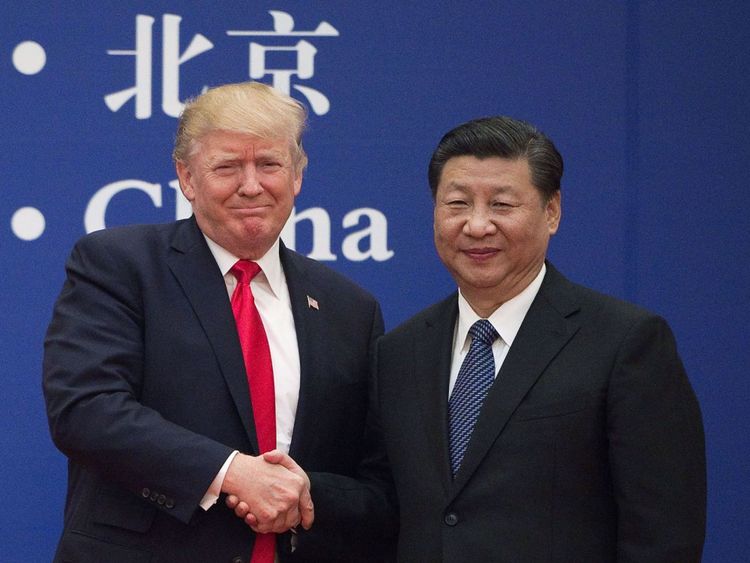If you’re Chinese, it’s obvious: US tariffs are “typical trade bullying”, according to the Ministry of Commerce here in Beijing.
China Daily, a state-run newspaper, isn’t so polite.
The Trump administration is “behaving like a gang of hoodlums”, it says.
Chinese media had been pretty measured up to this point.
According to propaganda instructions leaked to China Digital Times, news organisations were ordered “to prepare well for protracted conflict”.
They were also told: “Don’t attack Trump’s vulgarity; don’t make this a war of insults.”
That advice seems to have been junked.
The government in Beijing is getting ready for a long battle, and that reflects the nature of this trade war.
It’s not merely a tit-for-tat tariff exchange, but something more fundamental.
President Donald Trump complains that the US trade deficit with China is too large; that the Chinese government gives unfair support to its home-grown companies; that China steals intellectual property from the US by various means.
He’s right on the last two counts, at least.
But the suspicion on the Chinese side is that tariffs are meant to slow its growth.
According to the propaganda instructions: “The trade conflict is really a war against China’s rise, to see who has the greater stamina.
“This is absolutely no time for irresolution or reticence.”
Back in 2015, Chinese President Xi Jinping announced an ambitious plan for Chinese companies to dominate the hi-tech industries of the future – including biotechnology, robotics and new-energy vehicles – called “Made in China 2025”.
Those are precisely the sectors that these US tariffs are targeting.
This is less a trade war, perhaps, than a technology one.
In the meantime, Beijing has stopped referring to “Made in China 2025” publicly and told media outlets to do the same.
But China is certainly committed to the strategy: it needs it, to make the shift from a low-wage industrialised economy to a high-wage, hi-tech one.
Many other nations have industrialised but then stagnated: low wages enable cheap manufacturing, and so cheap exports.
But then wages rise, making exports more expensive, and the country gets stuck in what’s known as the “middle income trap”.
The Chinese Communist Party (CCP) owes much of its legitimacy to the economic growth it has delivered to China over the last 40 years.
It needs to keep delivering to safeguard its rule.
So a trade war that seems to take aim at exactly that becomes an existential threat to the CCP.
We’ll indeed find out who has the greater stamina.
From – SkyNews


